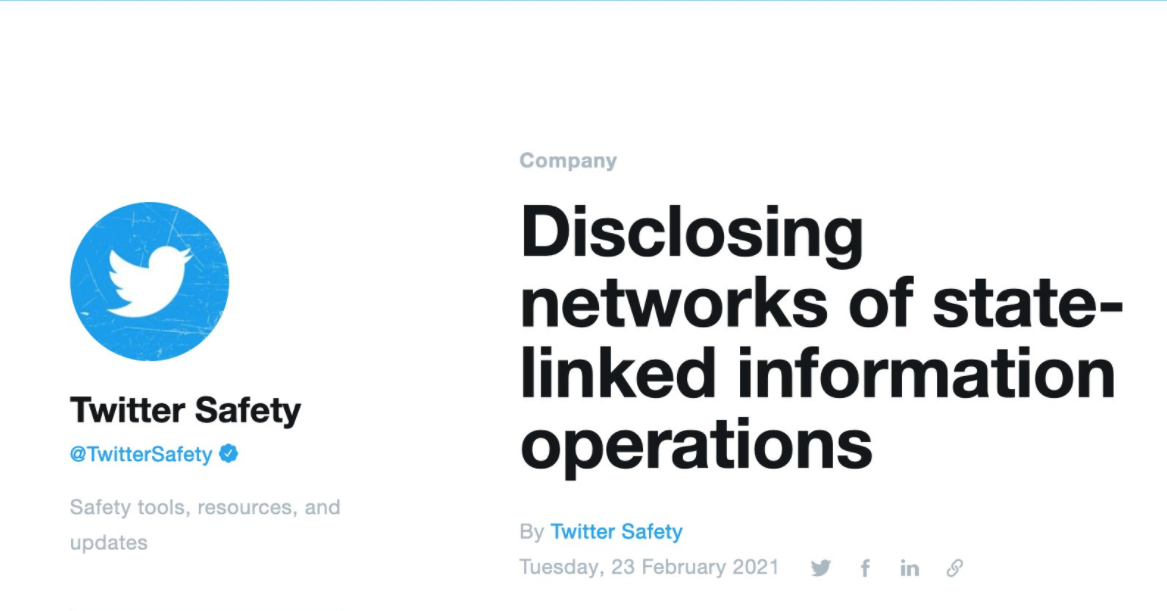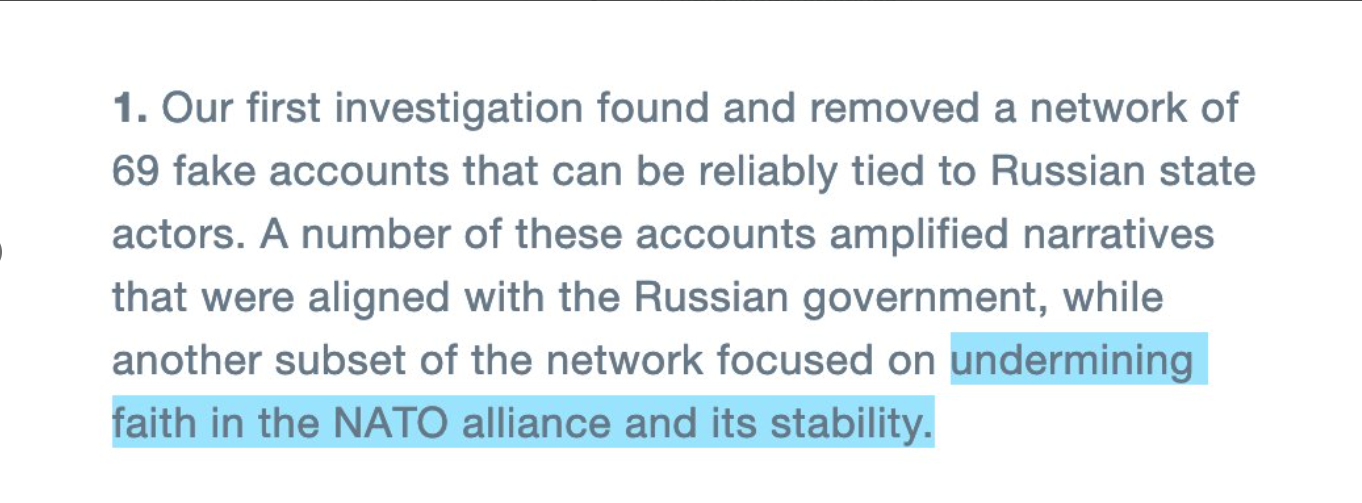Further reminders that social media are not public, but privately owned, spaces:
On February 24, 2021, Twitter suspended the account of CODEPINK National Co-director Ariel Gold, an outspoken feminist advocate for Palestinian rights and an end to U.S. militarism.
(From the Codepink page)
Here are the flagged tweets. I can’t see any connection between Twitter’s stated reason for violation of rules and the content of the tweets.
This comes hard on the heels of reports of another censorship:
‘Undermining faith in NATO’ is now grounds for Twitter ban
Heresy against NATO has apparently joined the ever-expanding list of sins that will get one erased from Twitter, as Big Tech mounts a crusade against infidels at home and abroad on behalf of values of Our Democracy.
Twitter announced bans on 373 accounts it connected to “state-linked information operations” on Tuesday. Some of them, the company said, “amplified narratives that were aligned with the Russian government” or “focused on undermining faith in the NATO alliance and its stability.”
From Twitter Safety:


If you enjoyed this post, please consider donating to Vridar. Thanks!




This is extremely disturbing. I hope that this is simply an algorithm that needs (major) tweaking.
Richard G.
…and Gold’s Twitter page has been re-instated! 🙂
Richard G.
Oy, and I just found out about this latest nonsense from youtube:
https://consortiumnews.com/2021/02/24/youtube-removes-a-cn-live-episode/
https://consortiumnews.com/2021/02/26/youtube-rejects-consortium-news-appeal/
Richard G.
Concluding paragraphs of a column I posted on Substack back in January:
It’s pretty clear that Ariel has her every tweet flagged by bad faith actors. It looks like Twitter auto-suspends when tweets are flagged without any oversight (seemingly not with even cursory artificial intelligence) and then blocked the account after a ‘pattern’ was seen. The pattern, however is of ‘hasbara trolls’ vindictively flagging her tweets.
The offence of ‘undermining faith in NATO’ is very, very worrying. Many people don’t have much faith in NATO, from peacenik lefties like me through to gibbering fascists like the former US president. It should certainly be allowable to criticise a military pact. In fact, undermining faith in corrupt or belligerent institutions is vital to political renewal.
Glenn Greenwald had a good writeup on political censorship by BigTech…
“That Facebook, Google and Twitter are exerting more and more control over our political expression is hardly contestable. What is most remarkable, and alarming, is that they are not so much grabbing these powers as having them foisted on them, by a public — composed primarily of corporate media outlets and U.S. establishment liberals — who believe that the primary problem of social media is not excessive censorship but insufficient censorship. As Sen. Ed Markey (D-MA) told Mark Zuckerberg when four Silicon Valley CEOs appeared before the Senate in October: “The issue is not that the companies before us today is that they’re taking too many posts down. The issue is that they’re leaving too many dangerous posts up.”
https://greenwald.substack.com/p/the-threat-of-authoritarianism-in